President Biden broke with Obama’s agreements with Cuba and is continuing Trump’s sanctions and aggressive stance. There are real problems in Cuba, but democratization and economic reforms will be decided by the Cuban people, not the U.S. or the “Miami mafia”. James Early on theAnalysis.news with Paul Jay.
Paul Jay
Hi, welcome to theAnalysis.news, I’m Paul Jay. We’ll be back in just a few seconds to talk about the situation in Cuba with James Early. Please don’t forget the donate button because we can’t do any of this if you don’t donate. If you already have donated, thanks very much. You can also hit the subscribe button, the share button, sign up on the email list and we’ll be back in a second.
Unprecedented protests have been taking place in Cuba, some demanding an end to the government led by the Communist Party of Cuba, others an end to the shortages of goods and services. There also have been large-scale rallies and marches in support of the government and socialism. These, of course, get little to no coverage in American media. There are calls coming from sections of the Cuban-American community and some politicians in Florida for some kind of US intervention, whatever that means. There are also calls coming from many quarters that it’s time to drop the sanctions and embargo against Cuba, something President Obama was on the way to accomplishing, Trump undid, and so far Biden is mostly continuing the Trump policies. Now joining us to discuss this is James Early. He’s a former assistant secretary for education and public service at the Smithsonian Institution. He’s on the board of the Institute for Policy Studies. And for forty-five years, he’s been working with Cuban civil society and government. And he met with President Miguel Díaz-Canel last July during a visit he made to the Cuban School of Medicine at a graduation. Thanks very much for joining us, James.
James Early
My pleasure to join you, Paul.
Paul Jay
So first of all, you’re not in Cuba, but I know you follow it very closely and you know lots of people there, so what’s your sense of what’s actually going on on the ground and what sparked it?
James Early
Well, I think the term unprecedented is an appropriate term. We have unprecedented public protests, which reflect an unprecedented material reality and political reality in Cuba. After 60 years of an economic war trying to strangle the Cuban revolution through the regime change of its government, coupled with the pandemic and the intensified measures by the Trump administration, which are being maintained by the Biden administration contrary to his campaign promises, we do have an unprecedented situation, the analog of which has not been seen since the fall of the Soviet Union. And so people are hurting. There are long lines and shortages of food. People are frustrated. The government, over the last 10 years, dating back to the presidency of Raul Castro, who brought an accord with President Barack Obama towards full diplomatic relations, talked much about corruption during his 10 year period. He talked much about inefficiency in government. Díaz-Canel is now the current president, who worked as an associate of Raul Castro for 10 years, almost monthly is hitting on those topics of inefficiency, malfunctioning economy, saying to the Communist Party of Cuba and to the government of Cuba that they must do better, they must produce, they must provide basic goods and necessities and reasonable aspirations for the Cuban people. So this is the context in which we have these unprecedented public protests. It is my sense, however, that the protests might be divided broadly into two ideological perspectives. One is an anti-socialist movement calling outright for the removal of the president and calling for the reinstallation of capitalism. Some of them aligned with the US State Department and right-wing Cubans and other right-wingers from Venezuela and Colombia and Brazil and the Greater South America, which is known as Miami, Florida, or southern Florida.
And then there are Cuban patriots who are citizens, some of them socialist, some of them communist, who are also raising the same critiques, but from a different end. They are calling their stewards of government to be accountable to provide those things. And some of them are putting forth proposals to the government to do so. So I think that’s the complexity of the story, which is being oversimplified in the Western mainstream media as being a failure of Cuban socialism and that what is needed at best, as a liberal move, is to provide humanitarian aid. As President Biden has said today, he’s prepared to give vaccines to Cuba, but he will not allow remittances. Well, this is just an empty political ploy to embarrass the Cuban government, which has already produced two effective vaccines and is helping people around the world, including developed countries, to fight covid-19. So we have a really problematic situation within Cuba. And we’ve also got a problematic situation here where the presidency of Joe Biden and Kamala Harris is betraying their campaign promises to renew the accords of President Barack Obama and President Raul Castro.
Paul Jay
Well, just to quickly talk about the hypocrisy of the American position, and then we can dig into some of what you said, it’s clear that the motivating factor of the United States is not about democracy in Cuba, as then they would be concerned about democracy in Haiti. For decades and decades, just a few miles away from Cuba, they support a small group of oligarchic families who work with foreign corporations, organized crime, and collaborate with the U.S. and Canadian governments to treat the Haitian people almost like slaves. So if they want to quickly democratize someplace, start with Haiti where they practically control the place. So we can rule that off the table, that the pursuit of democracy actually has anything to do with anything. But that said, there are some real issues in Cuba. And one of the reasons I like interviewing you is that you have both the skill and willingness to talk about what’s wrong with how socialism was developed in Cuba, because, as you say, even the Cuban leadership is talking more and more openly about what’s wrong. But let’s start with a couple of the basic critiques of Cuba and why these developed. So clearly, the major critique that’s coming certainly from the West, but also from within Cuba, is the lack of political rights, the restrictions on freedom of speech, the inability to organize any kind of other political parties. So what’s the historical development of this? And do you think Cuba is too slow to reform on these issues?
James Early
Well, I take my first clue from the internal narratives of debates and conflicts and projected resolutions among the Cubans, which would suggest that over the last 10 years at least within Cuba, coming from among socialists themselves who have critiqued the fact that Granma, the official newspaper, was really not reflective of the sentiments and the views and aspirations of the Cuban people. There have been some changes in Granma, opening it up to dialogical relationships with the readers, where people write in critiques or comments.
Paul Jay
For people who don’t know, this is one of the major newspapers in Cuba.
James Early
Yeah, well, it is the official organ of the Communist Party. It is really the main printed organ. And so you had some movement there. It may not be what I would want, but one has to measure it in the context of what have been the constrictions and the liberties that have been negotiated by the Cuban people with their stewards of governance over the last 60 years. Then there was critique that there was not enough open air. And so the government then moved to provide access to the Internet. And one might say, ironically, the organizing against the government is significantly being done on social media. But that’s another Democratic advance. Then there have been the debates within the party and the government and the resolutions to decentralize, to move away from an overly vertical, top-down centralism, to empower provinces to have more say in the policy direction of the country, and to change the structure of the top leadership of governance. It was Raul Castro who put forth legislation that was adopted and stated that the top leaders cannot be in those positions for more than two five-year terms. And he rotated out after a 10-year term himself. And it is likely that Díaz-Canel, as president, if he stays two terms, will move on and new leadership will be brought in.
These are all Democratic flowerings within the context of socialism. And when I say democratic, because this is one of these metaphysical terms that is projected as a universal without looking at the diverse ways in which citizens in diverse situations really actualize their, as the Cubans would say, protagonistic power or proactive power. We’ve seen more Cubans on the Internet, including communists who uphold the revolution, who criticize the revolution, sometimes offering proposals, but other times simply offering their critiques. So the fact of the matter is that we have seen, I won’t say a flowering of a new stage of democracy, but we’ve seen new pinheads of light emerge in this decentralization away from a strict top-down leadership to really relying more on one of the most educated populations in the world, according to the United Nations, to really express themselves. As an outsider, I think it could go further, but I’m an outsider. It’s really important to see how the Cubans themselves are negotiating and measuring and what compromises they come up with and how that is reflected in a more empowered citizenry. Their voices, their enterprise. The new adjustments in the economy have really been struggling with what kind of construct of an open market, of a small enterprise market. Would it be a Vietnam model? Would it be a Chinese model? Would it be a sui generis Cuban model? They have not been able to figure that out to effective levels and the government, as well as citizens, are expressing a lot of frustration about that.
Paul Jay
I’ve always thought that they could have allowed more openness in terms of public opinion, speaking out, even organizing. But I say that understanding in the context, that’s from the very beginning of the Cuban revolution, especially as it became clearer and clearer it was really a socialist revolution, that forty miles off the coast of Florida, the United States was going to do everything possible to overthrow this government. And the more space you create for oppositional organizing, the more space you create for the Americans to fund and control that oppositional organizing. So I get the restrictions on oppositional organizing for quite some time. Let me just tell you quickly something I found just to show the extent of how insane the American policy was. It turns out that just before the Russians sent the missiles to Cuba, I guess it’s 1962, there’s a meeting that takes place with Robert Kennedy. I don’t know if you know this story because it just came out in some documents that were released for the 9/11 Commission, although it had nothing to do with 9/11. A meeting takes place chaired by Robert Kennedy and a special group to plan the invasion of Cuba. And Kennedy suggests getting a domestic airline, painting it with the colors to make it look like a domestic airliner, shooting it down, and using it as the pretext for the invasion of Cuba. And this is in the actual minutes of this meeting that’s now been released under this 9/11 Commission. So within that context, you can understand. On the other hand, why couldn’t they allow more openness but make it illegal to take foreign money?
James Early
I totally agree with you. Let me just comment on that scenario with Robert Kennedy, which I am not familiar with, but it sounds like a page out of 1898 with the sinking of the USS Maine in which it is thought the United States sunk the USS Maine in order to set up a rationale for the occupation of Cuba. So this is another of the dastardly reflections of people who talk about high-flying ideas about democracy but then practice the most dastardly anti-democratic views. I do agree with you that an over-centralism, a chauvinistic view of “let us deliver unto our citizens”, rather than ‘let us be the stewards of collaboration with our citizens” and take on the responsibility of trying to objectify for them the multiple and often contradictory views of what citizens aspirations are and to make proposals in the general welfare, which means that is always a compromise. Domestic and international policy is always a compromise among interests. But what is in the general welfare of the citizenry?
I personally, as an external observer, feel that there has been too heavy a hand. The question of race, for example, the Cuban government and the Communist Party have admitted that in the first year of the revolution they made that a taboo issue. And I recall writing back, I think it was 1989 when the late Manning Marable asked me to go on a visit with him and he published in his magazine at Columbia University an article I wrote: Reflections on Race in Cuba. And I pointed out an easy reduction that if you are not honest with yourself about what’s going on in your life or your society, your enemies will find those points and they will use them against you. And indeed, the question of race has been raised through the US State Department and the question of the issues of democracy is being raised. So it is in the interest of the Cuban revolution to be more open. The late Fernando Martínez Heredia, who was a critical Marxist who ran one of the key centers in Cuba, says you always have to have a critical engagement with yourself, not just looking and fawning over your extraordinary achievements. And certainly, Cuba, a country with very little resources and 11 million people, starting out in ’59 with six million people, in a world of eight billion, has done extraordinary things. But you can’t fall in love. You can’t seduce yourself. You have to look into that mirror and ask yourself “where are the cracks and why am I not seeing them?” Because we are human they must be here. And to put that in some balance with the extraordinary achievements both internally, with regard to health care and biotechnology, with regard to education and arts and culture, and with regard to solidarity and internationalism and helping developing and developed countries around the world with a really, really major onslaught of disease and helping to abate and to prevent that.
So, yes, I think there is a self-critique that is very important, and I think they may be learning those lessons. I don’t think the government is going to fall. I’ve been doing interviews and people ask “will the government fall?” No, I do not think that will be the case. The big question will be how the government reacts to this and how will they deal with it. Now, you raise a point about multiple parties and that it’s a single-party country, and that’s an issue that many on the left and many progressives and socialists around the world are debating. And I don’t know if that will come to the fore in Cuba and if it does, how it will come to the fore in Cuba.
Paul Jay
When Marx and Engels talked about the dictatorship of the proletariat, first of all, they used the word dictatorship in the 19th century before there was a Hitler. I don’t know if they even would have used that word right if they knew what was coming. But it was supposed to be the use of the state against the old bourgeois capitalist elements, but the other flipside was supposed to be democracy for the working people. It was never meant to be dictatorship of a party. And whatever best intent people have, and I’m saying this not to condemn the Cubans because it’s easy to sit here and say these things, but it’s more of a lesson to be learned for hopefully future models, if there isn’t as much effort put on democratization there is no question that after decades in power or even less, you get bureaucratic hacks. I saw them in Cuba. I saw them in Venezuela. And there needs to be a way for the people to exercise their democratic oversight to clean these hacks out or you do wind up with what essentially becomes a dictatorship of the party.
James Early
I’m in total agreement with you and I’m familiar with Venezuela. I spent time with Hugo Chavez and I spent time with Nicolas Maduro. There is a culture of centralism that I think carries a de facto arrogance with it, a chauvinism that “we will provide for the people,” rather than that “we are servants, we are stewards, helping the people to objectify what the various needs and aspirations are and coming to the best compromises that can uplift everybody at a particular moment.” And I often use the analogy that some people who are living in the mountains want a better road down to the capital city. Some people living on the river want a bridge to be able to get to the surrounding areas. Other people want to be able to cross the country. And then you look at your budget and you objectify for your citizenry “these are the principal things that are being asked for. We do not have the wherewithal to do them all at one time.” Perhaps it is building a road across the country that better connects us all that is in the best welfare of the country at this moment. So the notion of a political class, an analog to that will be these political parties, is a debate all over Latin America and people are very frustrated with left-wing social movements who really cannot run a nation because they are movements. You really have to institutionalize power. That’s why you have a state. And you’re able then to do this in a more balanced way of evaluating where things are. But I think this is a critique that I hope the Cubans are raising among themselves. And certainly, from an external point of view, I think it is one of the problems of an over-centralism and a kind of elitism that goes on with many leftists, “that we know better than the citizens.” And again, the irony with Cuba is that it has a very highly educated population. And so the question is how to help them release that power in the context of developing a socialist state and realizing that treason is an issue that all countries have to deal with. “No, we are not going to allow someone to come in and change our system. But short of that, raise whatever critiques you have and put whatever proposals you have, and it should be accepted by the stewards of government and used to help people negotiate the way forward.”
Paul Jay
I mean, I have no way to tell where the majority sentiment is in Cuba. Anecdotally, when I was in Cuba a few years ago, I did this thing where I rented a car and just drove all around picking up hitchhikers. That’s the other thing, they try to paint Cuba as this very closed society. If you go as a tourist, you’re confined to tourist enclaves or something like that, but it’s simply not the case. You can go anywhere you want.
James Early
I say to people there are two things you can’t do in Cuba, the same two things you can’t do here in the United States. You cannot just walk into a military base, just sort of go wandering in, and you can’t just walk into a federal building without some identification.
Paul Jay
Well, there is other stuff you can’t do, but it’s not clear, at least when I was there. I got very friendly with a guy who worked as a waiter at a hotel we were staying at. And I said, “well, can I come see where you live?” And there was a lot of caution. “Well, I don’t know.” So I kind of pushed him on it and he sort of shrugged, “OK, what the hell?” So he took me home and I was in the house and he had a picture of Castro on the wall and it was modest but nice enough. But then he said, “well, you better go now.” And I said, “why?” I kind of expected I’d be invited to lunch or something and he said “the neighborhood committee will see you.” It wasn’t because he was worried about the police. It was his own neighbors.
James Early
The Committee for the Defense of the Revolution. In crisis times here in the United States, with the threat of terrorism, we have had the same proposition. “Check out your neighbors. If you see something, say something.”
Paul Jay
But when I’m driving around with these hitchhikers, because I could only speak to people that spoke English, I was getting particularly a cross-section of people that may have had a little more access to Western media. At any rate, a lot of the hitchhikers were very dissatisfied with the way things were going. But they hated what they called the Cuban mafia in Miami. They didn’t hate their government, they had a lot of problems. They thought there were certain things that were unjust. They weren’t sure that all the privations were being shared equally. But they despise the people in Florida and they did not want those people intervening. And I think that’s a real minority. But what sense do you get of where the sort of majority opinion is?
James Early
Well, I think the majority opinion has been reflected historically in that Cubans are a proud people. And one can say whatever one wants to say about Fidel Castro, and I have mostly favorable things to say about him, but they were very proud that he had these big visions and that he was able to bring a lot of them into fruition, not alone, not by himself, but by building a cadre of people and a citizenry who actually produced the health care, who produced the educational system. We must remember that the Cuban revolution has had three transitions in its top leadership with basically not even a wrinkle going on among the people about it. So they were able to institutionalize a set of values, a sense of humanism, a sense of engagement and collectivity that says “These are our virtues. These are our problems. We will settle them for ourselves. We don’t want anybody else to do it.” And one can imagine that if the death threat against the Cuban revolution was not just 90 miles away, we may not have seen, what I would, call some of the distortions of what is going on. And this is, I think, where we need to go in the U.S. relationship with Cuba. Allow the Cubans to debate and handle their own internal conflicts and come to their own resolutions and let us see how they demonstrate how they will carry their nation forward. They will not turn into a Colombia, which the United States coddles with seven military bases and accepts all of the violence against trade unionists, undermining of the peace accords, and the daily racist murders that go on. The silence on the part of the Biden-Harris administration about Brazil, where over half the population is self-identified in the official census as Afro-descendants. You’ll never hear a discussion about race there. And there’s the other things that the United States government has done regarding Palestine and so forth and so on. So the United States is in no position to assume a moral vector of looking at how the Cuban government should handle itself. We should join the family of nations. 184 to 2 was the most recent vote in the UN to get rid of this blockade. That overwhelming majority has been exhibited for the last number of years. The United States is a rogue nation in that regard, and we need to call it as such. And Trumpism is still around, but Donald Trump is no longer the rationale for voting against Trump in order to have Biden-Harris because much of the vote was not for Biden-Harris, it was against Trump. But with the 2022 senatorial elections, the 2024 presidential election that’s coming around, we have to say to this administration, “You will be held accountable for going back on the campaign promises, which is one of the planks that we voted you in on.” And he used Barack Obama’s name very liberally. Again, the accord was between Barack Obama and President Raul Castro. But be that as it may, this chauvinism that somehow America can wave its magic wand and help people of the world. We have a big problem with this Biden Harris administration. We see it on civil rights. We see it in not wanting to deal with the filibuster. We see it in coddling the violence in Colombia. The CIA chief was just down in Colombia. The Haitian issue that is now unraveling because of the US having trained these mercenaries, these mercenaries being sort of the Israel of the Americas who are being deployed all over the world. So we have to apply a lot of pressure. And when I say “we” I’m not just talking about people who carry the big P progressive or people who see themselves as leftists or socialists, I’m talking about earnest Americans who want to live in a world that follows the protocol of nations to handle issues where there can be found mutual benefit, but also can handle the heavy, conflictual issues of ideology and politics, but within the standards set up by the family of nations. And right now, the United States exists wildly outside of that framework.
Paul Jay
Let’s deal with just a few specific things that are being talked about in the media. One of the things that’s going around today is that it’s not true that the embargo is to blame. I saw a CNN report which listed the reasons for why there’s such economic problems in Cuba and didn’t even mention the sanctions. And then there’s another article that says, “Well, Cuba can trade with other countries. They don’t need the United States.” What is the real issue here?
James Early
Well, Cuba is 90 miles away from the United States. There are Republican moderates on the Mississippi River in Mobile, Alabama, and I’ve met with them over the last 15, 20 years, who don’t want to deal in ideology. They want to trade chicken wings and chicken breast, turkey necks. And the Cubans want to buy and the Cubans, at one time, were buying a lot of food and they had to put up money on the table because they couldn’t get loans. The United States not only has restricted third parties from dealing with Cuba, they punish nations around the world, including Western developed nations, who violate what the United States government says should be the way to deal with Cuba. So this embargo has had a qualitative effect.
Paul Jay
Can I just give quickly one example which is a Canadian company that’s been very active in Cuba, helping with mining and other issues. And the executives of that company were barred from ever traveling to the United States.
James Early
Yes, this is the big stick imperialism that the United States exhibits both with its enemies and its so-called allies. And that’s just totally unacceptable. We live in a connected world, so we’re not just citizens of one country. We have a global responsibility and we are allowing our government to be a rogue government and we are complicit in that. But this embargo has had a qualitative effect. But President Díaz-Canel has said we also must look to our own shortcomings, our own inefficiencies, our own errors, our own failures, even if the blockade has been a qualitatively distorting and limiting element in the material circumstances of Cuba. So the embargo is a big issue and we have to face it. And we’re seeing more and more people raise contradictions with the Biden administration. You’ve got Congressman Gregory Meeks, who’s head of the foreign relations desk on the Democratic side of the House, who has called for a dialog with Maduro given the new national assembly in Venezuela. He told the Biden administration, “you should take this opportunity to enter dialog.” But what does the Biden administration do? Blinken at the State Department comes out with this silly, backward view that Guaido is the legitimate president. I mean, it’s laughable. What does Biden do again today with Cuba? He offers them vaccines, but says he will not allow remittances. That’s not a serious statecraft. That is an arrogance that says, “let’s see how much longer the Cuban people can live under these oppressed economic circumstances that the United States government has had a qualitative role in imposing and see if they will overthrow their government.”
Paul Jay
Why is Cuba having trouble with vaccinations because, as you say, I thought they had created their own, but they don’t seem to be as vaccinated as one would think?
James Early
They can’t get the syringes. They’re being prohibited from buying syringes on the market as they were limited in getting ventilators on the market. And the Cubans have had a spike. I just saw a stat that says Cuba’s population is more or less equivalent to that of Ohio. I think Ohio has had something like nine hundred thousand cases of contagion and 20 thousand deaths. And the Cubans have had under three thousand deaths with a much smaller contagion. And when you look at them by way of comparison to Brazil or Colombia or Mexico that have far bigger budgets, far more resources, free trading in the global economy, the Cubans are doing an extraordinary job. And so what we should do is step back, step into the protocols of nations, debate with them on those protocols, find mutual interests, such as cancer drugs. Cuba has three preventative cancer drugs. They have drugs on diabetes that other people in the world are using. But it is the arrogance of the US empire, both Democrats and Republicans, and the silence of good people who are citizens across the spectrum in the United States who are allowing this to go on. But we’re beginning to see somewhat of a breakthrough of the voices that are coming out. Congressman McGovern and Barbara Lee from California have just asked for a meeting with Biden. They put out a public letter on that to say that you need to lift these sanctions. There will be an article coming out in The New York Times soon with a number of people, of which I’m one of the signatories, along with many others, calling for the dropping of these sanctions and the blockade. So we have to mature these contradictions between the lofty ideas and rhetoric of democracy being put forth by this administration and its actual vulgar, illegal, immoral practice, which is really taking lives.
Paul Jay
All right, thanks very much for joining us, James.
James Early
Thank you for having me. I look forward to the next time.
Paul Jay
And thank you for joining us on theAnalysis.news. Please don’t forget, we can’t do this without your financial support, so click the donate button, get on to the email list, and share the story. Thanks again.

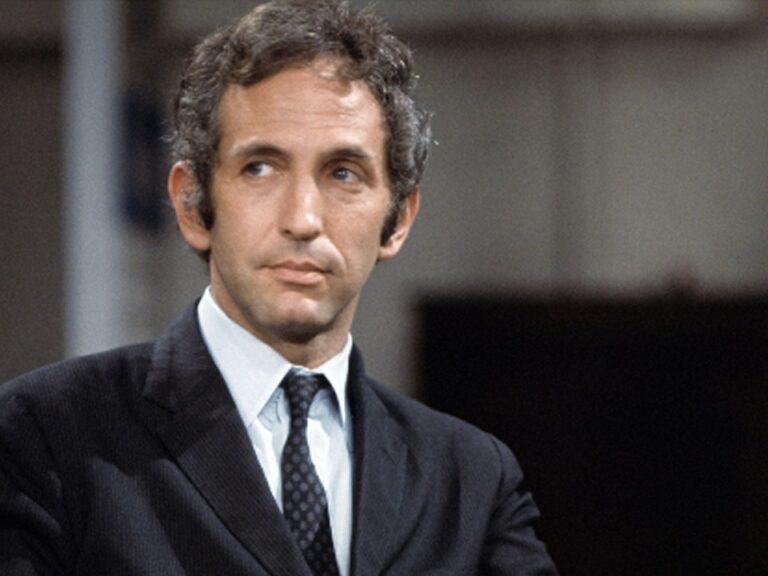
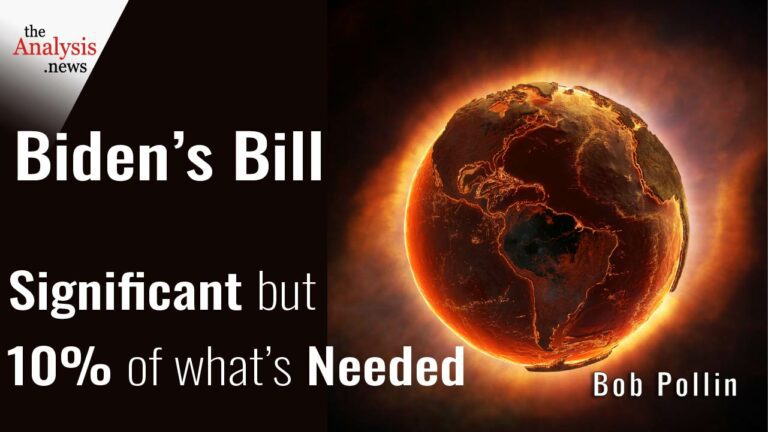
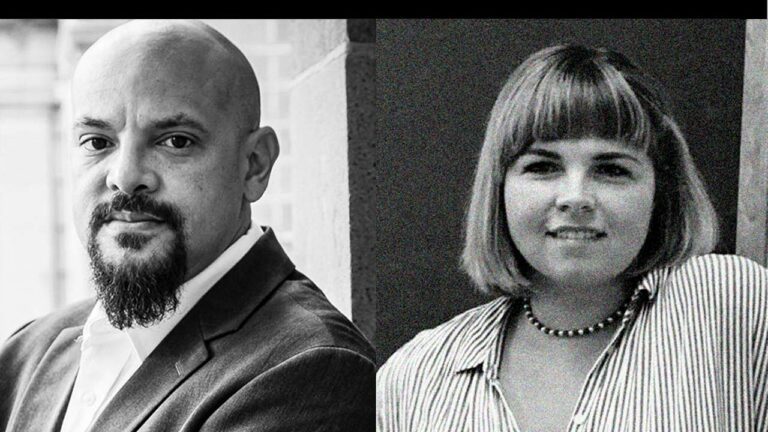
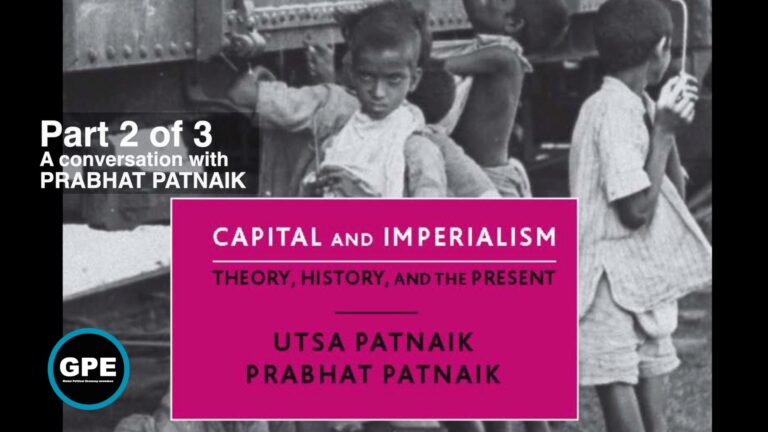
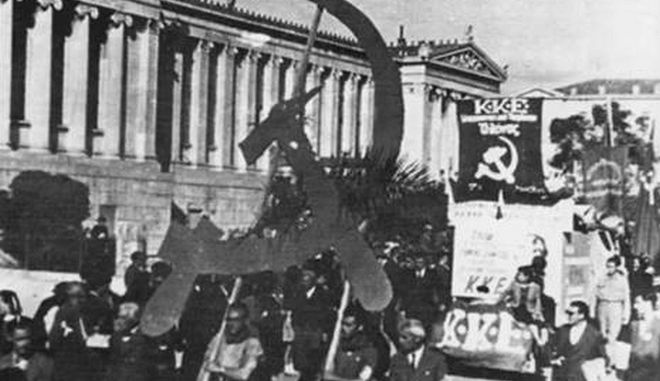
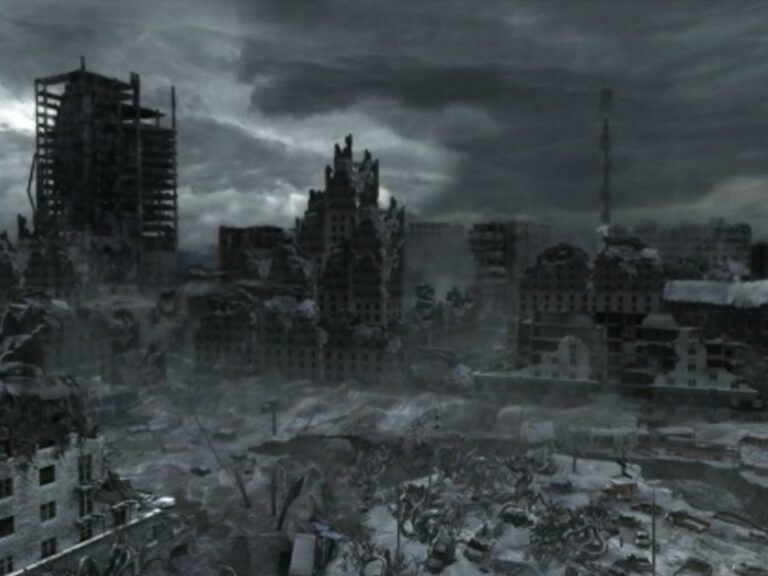
I have issues with James Early’s reporting on Cuba. I will read his comments tomorrow, or soon, and respond. I’ve been to Cuba 19 times in 20 years, have lived w/families & studied there; also I’m an unpaid, unofficial researcher but seem to be better informed than Early. Also, my experience of being in Cuban homes is totally different than your experience, Paul. It’s now 4 a.m. here. I got up special to watch this program cuz I’m very upset about US coverage of Cuba right now, and was disappointed, very, with Early too.